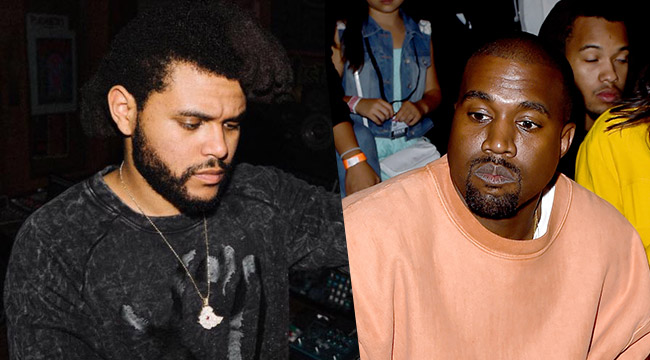
The world has known that Kanye West was scare quotes crazy for a while now. It was a huge part of his draw. It was there in every “unhinged” “rant,” every late-night Twitter tirade and sprinkled liberally throughout his megalomaniacal body of work in this decade. Kanye’s unfiltered craziness was a huge part of his appeal and hugely entertaining. Until it wasn’t.
Kanye checked himself into a Los Angeles hospital for a psychiatric evaluation last Monday and has yet to leave. Suddenly, everything he’s done in the last few years required another look. Every breakdown needed to be re-examined in the light of an actual mental break. And if fans were allowing themselves to be honest, they found evidence everywhere that should make them uncomfortable. Kanye made it plain over and over again that he was going through it. Every reference to Lexapro and distorted Yeezus-era scream suddenly carried more weight. Creating a song out of microphone feedback — the sound of something looping in on itself until it becomes an undesirable and noisy mess — and closing out that song with blown-out shouts, didn’t seem so odd anymore.
As listeners, Kanye’s mental health problems force us to reckon with the fact that we’ve intentionally put aside these warnings in the name of being entertained. When you consider that Yeezy’s no-qualifiers masterpiece MBDTF and possibly the most influential album of this century came out of two of the darkest moments in West’s life — his pariah period after the Taylor Swift incident and the death of his mother, respectively — it was easy for us to make the trade. We were fine with glossing over the obvious imbalances contained within the music as long as it was this good.
But that does raise the question: How comfortable should we be with listening to artists destroy themselves? And how complicit are we as listeners for telling these artists that their best work comes from the periods when they’re mentally unstable?
With Kanye, it’s easy to put a bit of distance between fan support and enabling. He tossed in some other stuff in between the cries for help. For every troubling line, there were three about having sex with stars and making clothes. With every news outlet reporting each extra-musical incident in a tone that said this was just Kanye being Kanye, fans were conditioned not to look for problems. While Kanye definitely planted seeds in his music, it’s easy to see how we missed the forest for the trees.
There is one mega-star artist who is offering us no such comfort — and he’s an artist whose rise is only possible in a post-808s & Heartbreak world. The Weeknd has made himself a millionaire with a beautiful, flitting falsetto and a dead-eyed cocaine numbness. While the creeping sadness of a drug-addled night out has been rap’s subtext du jour for the last several years via artists like West and Future, The Weeknd doesn’t even bother to bury it. We’ll have no convenient dodges should he break down, because the entirety of Abel Tesfaye’s artistic persona is a shell of a man being held up by illicit substances. And we still made him number one, multiple times.
Of course, there’s room for differences between what an artist sings and what an artist does. Not every song is autobiographical and The Weeknd’s recently talked about avoiding alcohol and being sober in his personal life. However, given his candor about his past drug use, and the entirely different message projected by his songs, there is reason enough to cause any fan to worry. Regardless, Abel’s drug use has been glorified in the same way rappers who tout their drug addictions are celebrated.
Apparently, loving not being able to feel your face and lines like “When I’m f*cked up, that’s the real me” weren’t strong enough signals for The Weeknd. His latest album Starboy turns the club lights on and forces the listener to look his problems in the face. Tesfaye stares directly at the listener on the album’s neon cover art, an unflinching gaze that only becomes more uncomfortable with each sampled snort and lines about cleaning a table with your face. Even Ellen can’t normalize that.
https://www.youtube.com/watch?v=34Na4j8AVgA
Tesfaye makes his fourth-wall-breaking call-out even more explicit on the album’s best song, the titular “Starboy.” For any pop radio listeners struggling to see their part in The Weeknd’s steady descent, the chorus puts it in plain English. After verses full of drug abuse fueled by piles of money and new-found fame, The Weeknd aims a shot straight at all of us. “Look what you’ve done,” he sings. “I’m a motherf*cking starboy.”
It’s enough to make any listener queasy. And that’s probably the point. The Weeknd lives in our world, even if his contains several standard deviations more blow than the average. He saw us act shocked when a woman who made her name on a playful track about not seeking help for addiction succumbed to those same addictions. As an 808s acolyte, he’s been a part of normalizing Kanye’s mental health lapses. With “Can’t Feel My Face” we proved we’re all willing to overlook a substance-laden pop song with references to dying young in the first verse, so the formerly mysterious singer finally felt the need to be direct.
With The Weeknd possibly more than any other artist, we’ve made the trade-off explicit between good music and bad habits. Tracks like “Starboy” bring that deal out of our own mental backrooms and into the light of day. The Weeknd’s party monster persona is cleverly forcing us to face something pretty monstrous in ourselves: We’re okay with encouraging the destructive, brain-melting behavior that colors his entire discography as long as it sounds nice enough.






